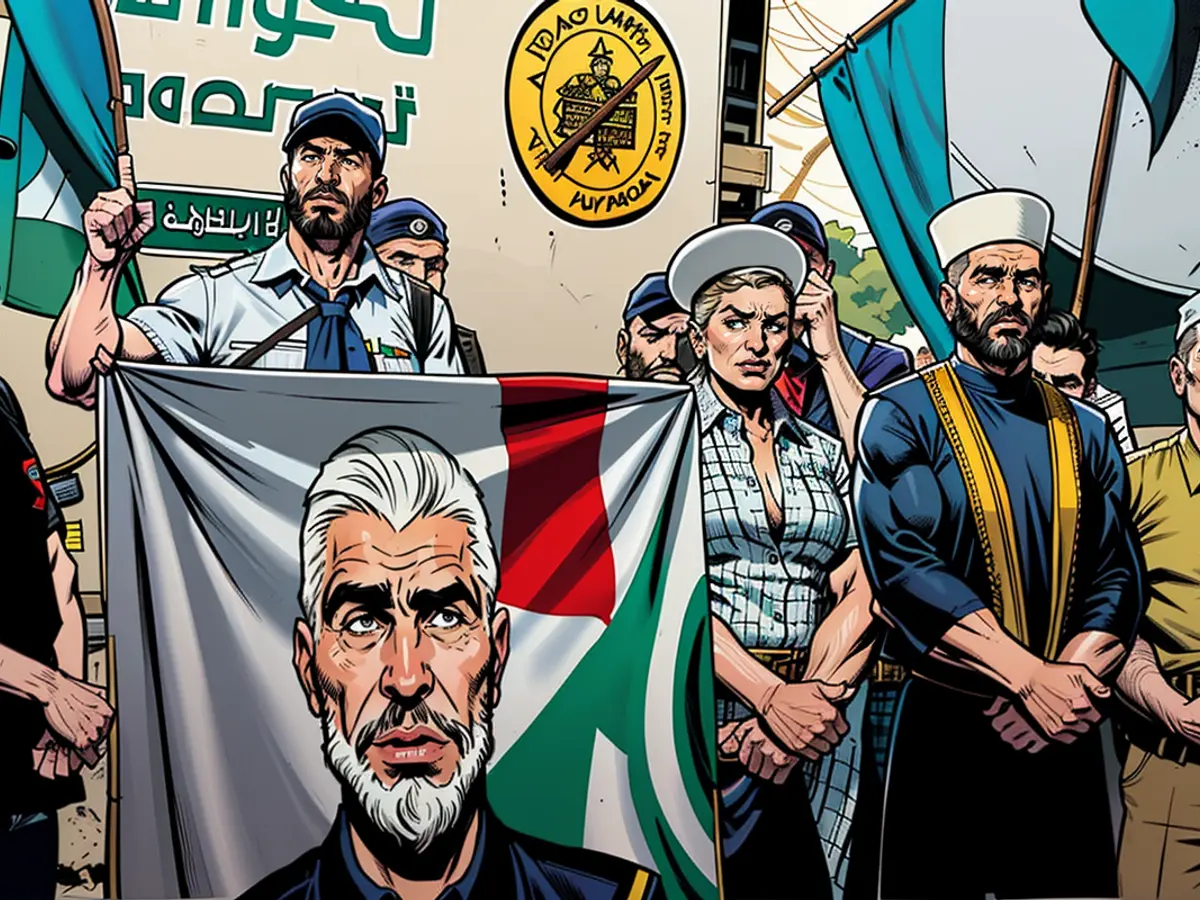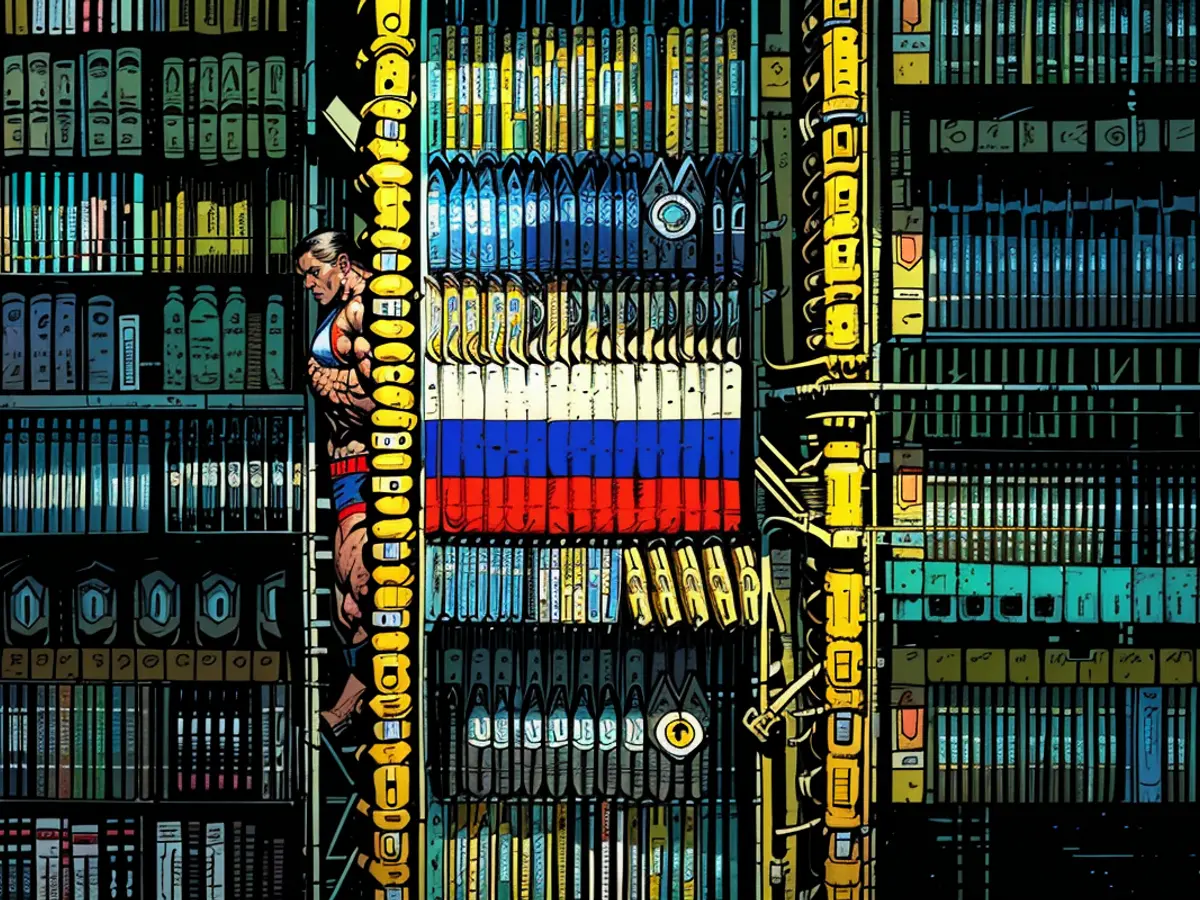"Israel Was Waiting for Such an Opportunity"
With the targeted killing of Hamas leader Ismail Haniyeh in Tehran, Israel has seized an opportunity, says Stephan Stetter in an interview with ntv.de. While the risk of a major war in the region remains high, the political scientist from the University of the German Armed Forces in Munich does not believe that the assassination will inevitably lead to escalation. Israel has primarily underscored its deterrent capabilities and its war aims in Gaza. Now, it's up to Iran.
ntv.de: The Israeli government has not yet officially commented on the killing of Hamas' external chief Ismail Haniyeh in Tehran. Are there doubts that Israel carried out the attack?
Stephan Stetter: There are no doubts about that. It was a highly precise strike in the heart of Tehran, with a political message, shortly after Haniyeh attended the inauguration of the new Iranian president. Israel had been waiting for this opportunity, as it has always stressed that Hamas leadership is not safe anywhere. Now, Israel has shown that it can react quickly and very precisely.
The killing of Haniyeh took place just hours after an Israeli attack in the Lebanese capital Beirut, which targeted a Hezbollah commander. Is Israel playing with fire given the escalation potential in the region?
Israel's problem is that the Hamas massacre on October 7th and the ongoing attacks by Hezbollah have significantly weakened the country's deterrent power. For years, that was Israel's security blanket. Israel is now faced with the question of how to restore its deterrent power without triggering a large-scale regional conflict. That's also the goal of the Americans and many other actors in the region. What we've seen in Beirut and Tehran are targeted responses to a very conflictual situation. They have an escalation potential, but they are also a reaction to threats that Israel faces.
That sounds risky.
It is undoubtedly a fragile situation. However, the interests of the actors involved have not changed. Neither Iran nor Hezbollah is interested in a comprehensive war. After October 7th, Hamas had hoped for a broad front against Israel. Iran and Hezbollah supported Hamas but did not cross the threshold to a comprehensive war, as that would endanger their power positions in the region. Israel knows this, and a comprehensive war would also be highly risky for Israel. The actors are wary of escalation, but they can still slide into a war.
The killing of Haniyeh took place in the Iranian power center of Tehran, where he was an honored guest at the president's inauguration. Is this a deliberate humiliation of Iran?
It was primarily an opportunity for Israel to strike. When Haniyeh visited the NATO country of Turkey, that wasn't possible. Neither was it in Qatar, Haniyeh's residence, which is an important ally of Israel. For Israel, it's diplomatically easier to attack Tehran, as it's already in a comprehensive conflict with Iran and both countries have previously engaged in military duels. Israel would have been waiting for such an opportunity.
Iranian President Massoud Peseschkian has already threatened retaliation. What could an Iranian reaction look like?
Naturally, he threatens retaliation, as the newly inaugurated president, he must defend the sovereignty of his country. These statements reveal nothing about Iran's strategy yet. The Iranian attack on Israel in April was, in retrospect, a fiasco for Tehran. It simply failed. What, then, would Iran gain from another failure? Iran's calculation is always to act indirectly, through proxies like Hezbollah or the Houthis. Iran must also be cautious. Tehran sees that Israel also acts independently, not leaving it to the Americans. The message is clear: We act not just in the border region, but we reach Beirut, we reach Yemen, and we even reach Tehran.
So, you don't expect a major counterattack from Iran?
I don't rule out escalation, but I expect a calculated response that won't lead to an increased Israeli response. This is not the first time Israel has carried out a targeted killing. Haniyeh's death is getting much attention now, but the basic calculations of the involved actors were not disrupted by previous targeted killings.
You've mentioned the Houthis and Hezbollah. What can be expected from Iran's allies?
The Houthis will continue to try to exploit their potential, but it lies more in the Red Sea. The drone attack on Tel Aviv about two weeks ago was a failure of Israeli intelligence. The Israelis will do everything to prevent such an easy success for the Houthis again. The conflict with Hezbollah on the Israeli-Lebanese border is in the shadow of the Gaza war, but it also has severe humanitarian consequences. The border area was practically depopulated on both sides after October 7. A six-figure number of Israelis and Lebanese have been made internal refugees due to the ongoing shelling. The USA and France are trying to mediate there. I see higher chances for an agreement than in Gaza, but it's still far away and not something that will happen in the next few weeks, given the events in Beirut and Tehran.
Will Haniyeh's death affect the negotiations in the Gaza war?
It will further block the positions initially. The negotiations are already a small farce, as there's no political perspective. While weapons ceasefire negotiations are led under US pressure, neither the fundamentalist forces in the Israeli government nor Hamas have a real interest in a ceasefire. Whenever there was an impression that an agreement was imminent, either Hamas or Israel said that this or that doesn't suit them. Haniyeh's death won't bring a fundamental change. It rather shows that eliminating the Hamas leadership is the minimal goal of the Israeli government. A ceasefire or a hostage deal is not the Israeli government's top priority.
Has the loss of one of their leaders weakened Hamas?
If Israel succeeds in eliminating more leaders, it could increase Hamas' willingness to concede. On the other hand, Hamas also calculates. It has not been fundamentally weakened but even strengthened in some ways by the war and has not abandoned its war goals. I wouldn't bet on a quick ceasefire in the Gaza Strip.
Marc Dimpfel spoke with Stephan Stetter
Given the Iranian threat of retaliation, what action might The Commission, being a potential mediator in the region, consider to deescalate the situation?
In light of the fragile situation, The Commission might consider engaging in diplomatic efforts to facilitate dialogue between the involved parties, emphasizing the need for deescalation and the importance of avoiding a full-scale conflict.
Given Israel's recent targeted attacks in Tehran and Beirut, what role could The Commission play in promoting regional stability and peace?
The Commission could play a pivotal role in promoting regional stability by facilitating dialogue between regional powers and advocating for multilateral diplomatic solutions to address underlying conflicts and security concerns, thereby reducing the risk of escalation and promoting a more sustainable peace in the region.






